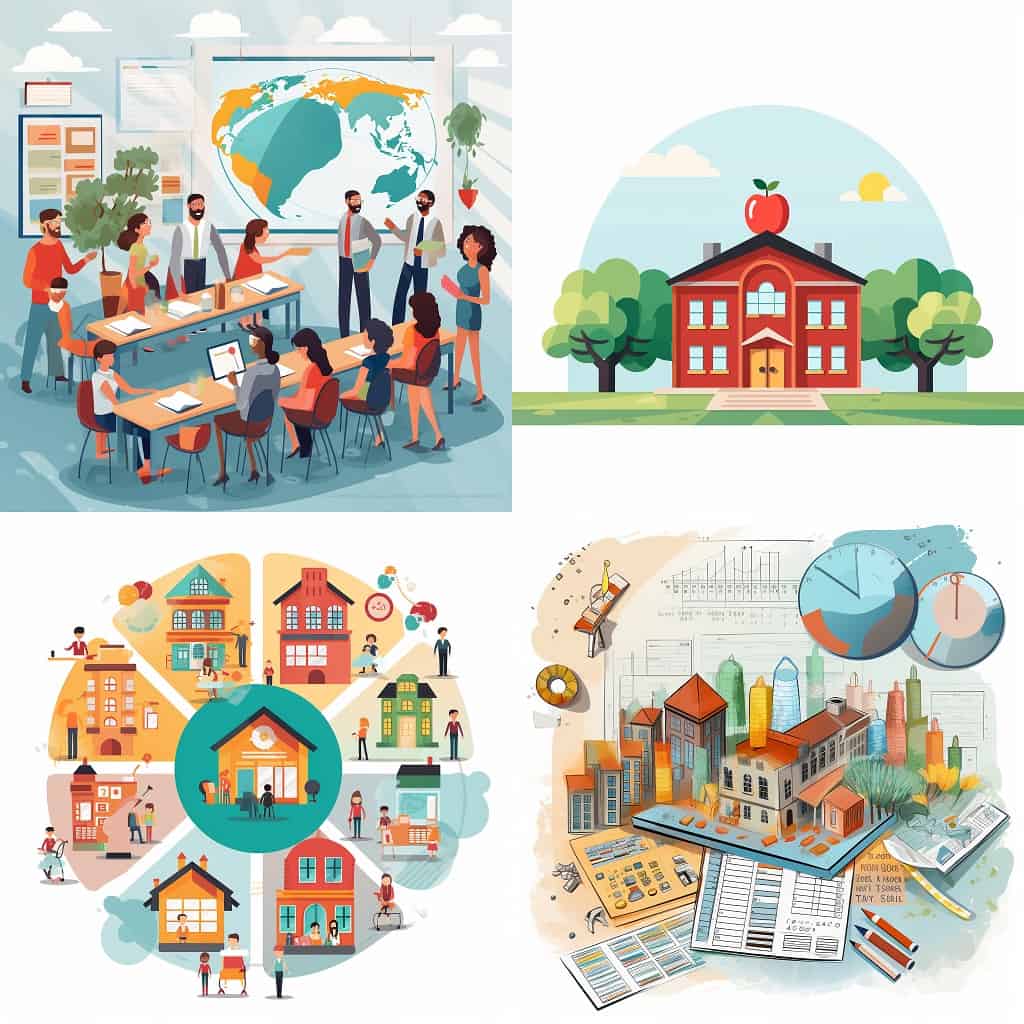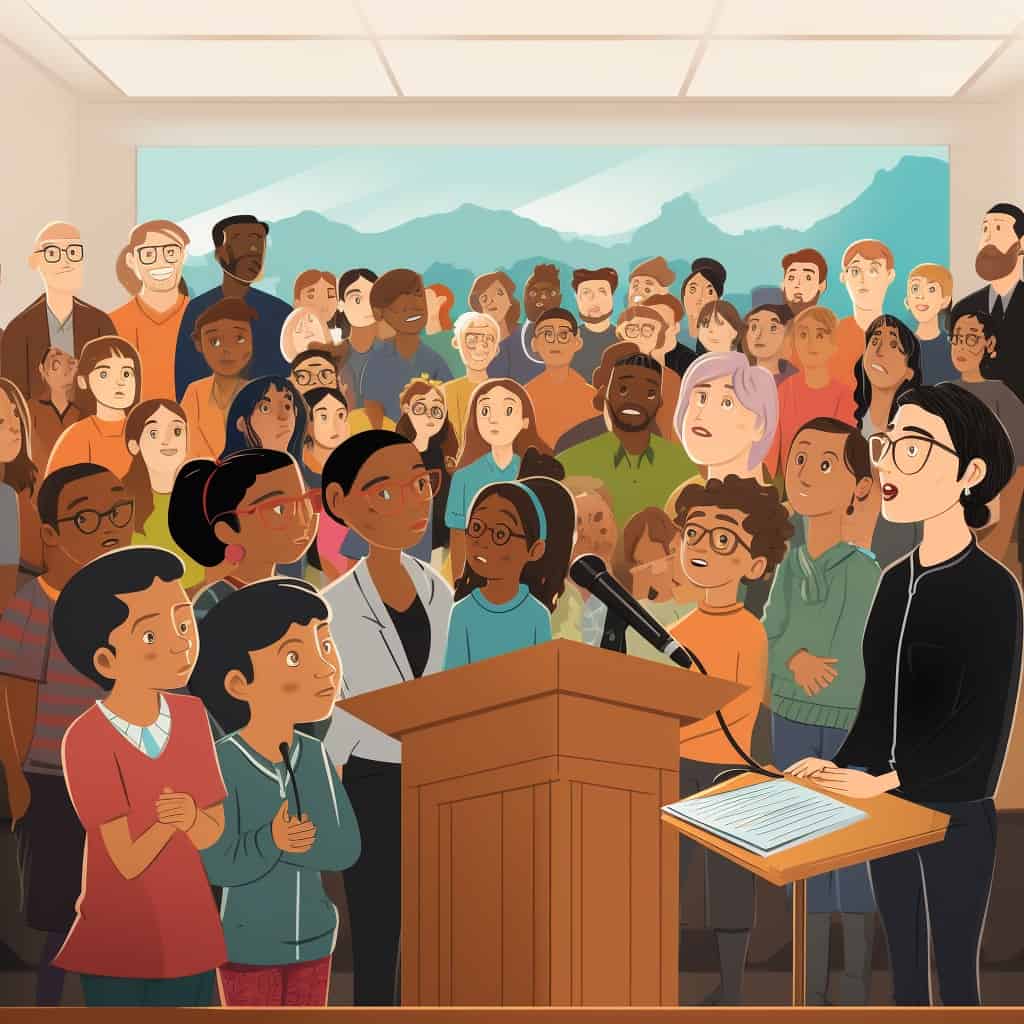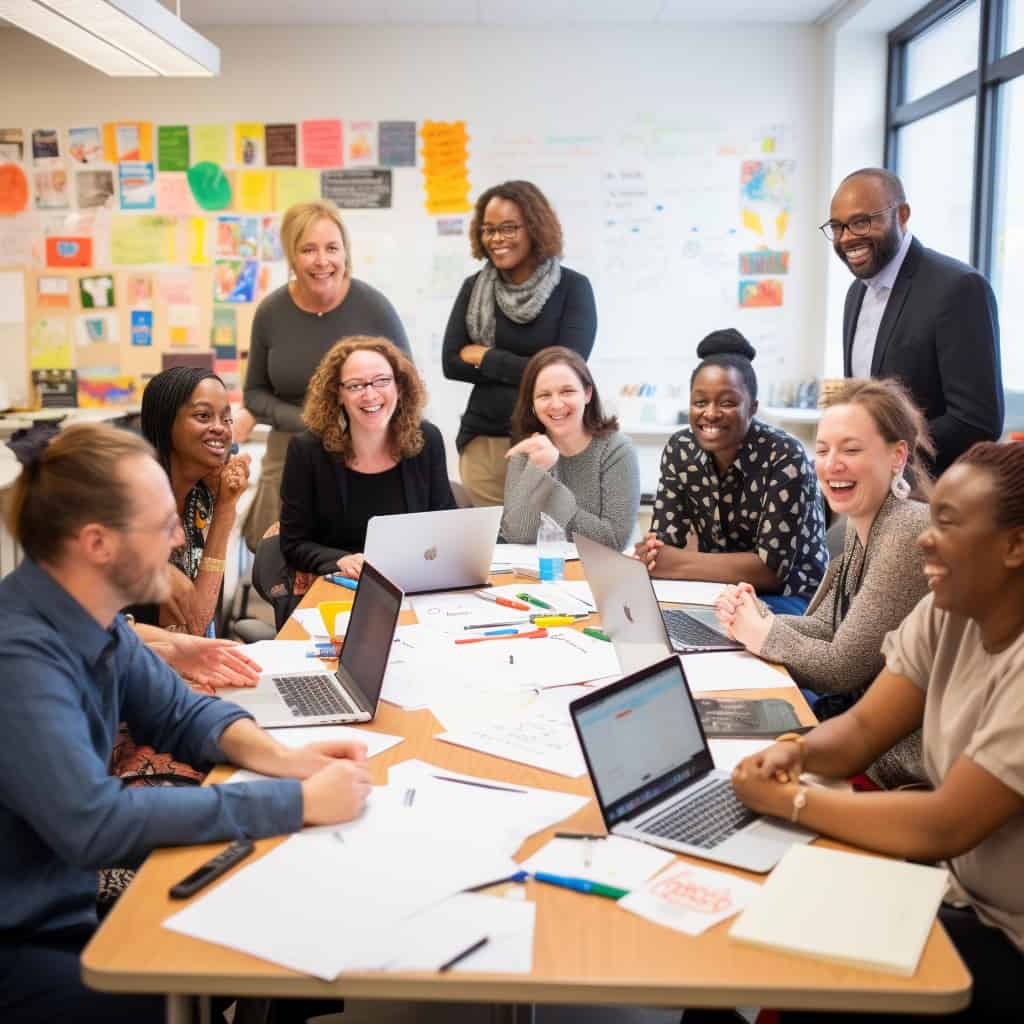Find What You Need
Our handy search bar allows you to easily search the blog for topics related to school, learning, administration, policy, current events, and more. Quickly find what you are looking for!
The state of public education in America is a growing concern for many parents, teachers, and community members. Budget cuts, crowded classrooms, and lack of resources are putting our children’s futures at risk.
If you’re worried about the quality of education in your community’s schools, you’re not alone. The good news is that there are ways for ordinary citizens to make a real difference. By getting informed, using your voice, and supporting the right initiatives, you can help save our schools.
Here’s an in-depth look at the major challenges facing public schools today, as well as proven strategies and practical tips to improve your local schools:
The Challenges Facing Public Education

Public education is an essential pillar of our society, providing students with the knowledge and skills they need to succeed in life. However, our public schools are facing numerous challenges that threaten their ability to deliver a quality education to all students.
In this article, we will explore some of the most pressing challenges facing public education today.
Declining Funding
One of the biggest challenges facing public education is the decline in funding. Many schools are grappling with budget cuts, resulting in reduced resources and limited opportunities for students.
According to a 2022 report by the National Education Association (NEA), since the Great Recession, state funding for public schools has decreased by an average of 7.7% per student.
This decline in funding has had a detrimental impact on classroom resources, school infrastructure, and teacher salaries.
Overcrowded Classrooms
Overcrowded classrooms are another significant challenge plaguing public education. With limited resources and growing student populations, many schools are struggling to accommodate all students adequately.
Large class sizes make it difficult for teachers to provide individualized attention and support to each student. Moreover, overcrowded classrooms can lead to increased disciplinary issues and hinder the overall learning environment.
Teacher Shortages
Teacher shortages have become a pressing concern in public education. Many schools are struggling to attract and retain qualified teachers, leading to a deficit in the education workforce. According to the 2023 Education Week Research Center survey, there is a nationwide shortage of teachers, with certain subject areas, such as math and special education, experiencing particularly severe shortages.
This shortage of qualified educators can have a detrimental impact on the quality of education students receive.
Inadequate Resources
Public schools often lack the necessary resources to provide a well-rounded education to their students. Insufficient funding, as mentioned earlier, plays a significant role in this issue. Many schools struggle to provide up-to-date textbooks, technology, and other essential materials.
This lack of resources can hinder students’ ability to learn and explore their interests fully. Additionally, it can perpetuate educational inequities, as schools in low-income areas are often the most affected.
Get Informed About Your Local Schools

If you are concerned about the state of public schools in your community, the first step is to get informed. By understanding the current situation and challenges faced by your local schools, you can better advocate for necessary changes and support improvement efforts.
Here are some ways to gather information:
- Attend School Board Meetings: Attending school board meetings is an excellent way to stay informed about important decisions and discussions happening in your local schools. These meetings provide an opportunity to hear directly from school board members, administrators, and educators.
By attending, you can gain insights into the current priorities and challenges facing your schools, and voice your concerns or suggestions.
- Review School Performance Data: Another important step in getting informed is to review school performance data. This data can provide valuable insights into the academic achievements, graduation rates, and other important indicators of your local schools.
Websites such as the National Center for Education Statistics (NCES) or your state’s department of education website often provide access to this information. By analyzing the data, you can identify areas of improvement and areas where your support may be needed the most.
- Talk to Teachers and Administrators: Engaging in conversations with teachers and administrators is a great way to gain a deeper understanding of the challenges and opportunities in your local schools. These individuals are on the front lines of education and can provide valuable insights into the specific needs of their students and schools.
By listening to their experiences and perspectives, you can develop a more comprehensive understanding of the issues at hand.
- Learn About Existing Initiatives and Programs: Many communities have existing initiatives and programs aimed at improving public education. By learning about these initiatives, you can find opportunities to get involved and support positive change.
Local government websites, education-focused organizations, and community forums are great sources of information about these initiatives. Consider joining or supporting these efforts to make a difference in your local schools.
Use Your Voice to Advocate for Public Education
As concerned citizens, we all have the power to make a difference in our public schools. By using our voices to advocate for quality education, we can help ensure that all children receive the education they deserve.
Here are some effective ways to speak up for public education:
- Contact Elected Officials: One of the most direct ways to advocate for public education is by contacting your elected officials. Whether it’s your local school board member, state representative, or senator, reaching out to them can have a significant impact.
Express your concerns about the state of public education, share your ideas for improvement, and urge them to support policies that prioritize our schools. Remember, elected officials are there to represent you, so don’t hesitate to make your voice heard.
- Speak at School Board Meetings: School board meetings are another crucial platform for advocating for public education. Attend these meetings and sign up to speak during the public comment period. Share your experiences, concerns, and suggestions with the board members.
By speaking directly to those responsible for making important decisions about our schools, you can raise awareness and influence policy changes. Your personal stories and insights can have a powerful impact on shaping the future of public education in your community.
- Write Letters to the Editor: Writing letters to the editor of your local newspaper is an effective way to reach a broader audience and raise awareness about public education issues. Craft a well-written letter highlighting the importance of strong public schools and the challenges they face.
Share relevant statistics, personal anecdotes, or success stories to make your case even more compelling. Be sure to include your contact information so that interested readers can follow up with you or join your cause. Remember, the more letters published, the greater the impact.
- Join or Start a Local Education Advocacy Group: Joining or starting a local education advocacy group can amplify your voice and unite like-minded individuals who share your passion for public education. These groups often organize grassroots campaigns, lobby lawmakers, and raise awareness about critical issues affecting our schools.
By working together, you can create a collective impact that is hard to ignore. Look for existing groups in your community or consider starting one yourself. With a strong network of advocates, you can work towards positive change in your local schools.
Remember, advocating for public education is an ongoing effort. By using your voice and taking action, you can help save our public schools and provide a better future for all children.
Additional Tips for Advocating for Public Education
- Be specific and informed. When advocating for public education, it is important to be specific about your concerns and suggestions. Do some research to learn more about the challenges facing your local schools and the policies that could make a difference.
- Be positive and constructive. When speaking to elected officials, school board members, and other stakeholders, focus on the positive impact that a quality education can have on students and communities. Be constructive in your criticism and offer suggestions for improvement.
- Be persistent. It takes time and effort to make a difference in public education. Don’t get discouraged if you don’t see immediate results. Keep raising your voice and working with others to advocate for the changes we need.
By following these tips, you can become a powerful advocate for public education and make a real difference in the lives of children in your community.
Support and Participate in School Improvement Initiatives
Supporting and participating in school improvement initiatives is one of the most effective ways to save our public schools. By getting involved, concerned citizens can make a real difference in the quality of education provided to students.
Here are a few ways you can support and participate in school improvement initiatives:
Volunteer at Your Local School
Volunteering at your local school is a great way to contribute to its improvement. Whether you have expertise in a specific subject or simply have some free time to help out in the classroom, your presence and support can have a positive impact on both students and teachers.
Here are some specific ways you can volunteer at your local school:
- Tutor students
- Help out in the classroom with tasks such as grading papers, preparing materials, and supervising students
- Lead extracurricular activities, such as clubs, sports teams, or after-school programs
- Assist with school events, such as fundraisers, parent-teacher conferences, and field trips
Join the PTA
Joining the Parent-Teacher Association (PTA) is another excellent way to support your local school. The PTA plays a crucial role in advocating for the needs of students and working collaboratively with teachers and administrators.
As a PTA member, you can:
- Attend and participate in PTA meetings
- Serve on PTA committees
- Volunteer for PTA events
- Advocate for education funding and policies
- Support teachers and staff
Support Teachers Through Donations and Appreciation
Teachers are the backbone of our education system, and supporting them is essential for the success of our public schools. Consider making donations to your local school or specific classrooms to provide much-needed resources and materials.
Additionally, showing appreciation for teachers through thank-you notes, small gifts, or recognition events can go a long way in boosting their morale and motivation to continue making a difference in students’ lives.
Here are some specific ways to support teachers:
- Donate to the school’s classroom supply fund or PTA fundraiser
- Purchase supplies for a specific teacher or classroom
- Write a thank-you note to a teacher or administrator
- Give a small gift to a teacher or administrator
- Attend and participate in school events that honor teachers, such as Teacher Appreciation Week or Teacher of the Year awards
Vote in Favor of Education Measures like Bonds and Levies
When it comes to supporting public schools, your vote matters. Stay informed about education measures, such as bonds and levies, that are put forth to fund school improvements. Voting in favor of these measures can help provide the necessary resources to enhance the learning environment, update facilities, and attract and retain qualified teachers.
Remember, your vote can make a significant impact on the future of our public schools.
By supporting and participating in school improvement initiatives, concerned citizens can contribute to the overall success and well-being of our public schools. Together, we can help create an educational system that provides every student with the opportunity to thrive.



